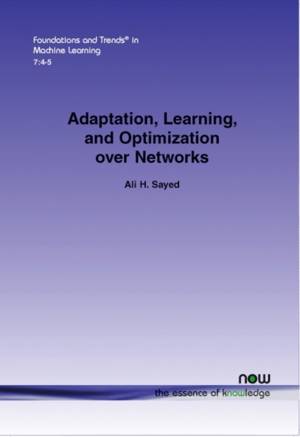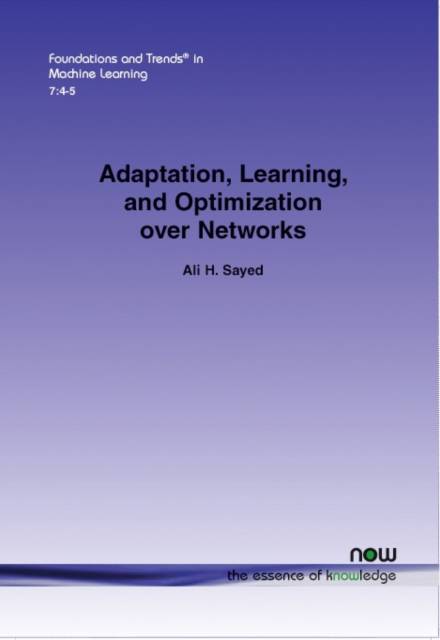
- Afhalen na 1 uur in een winkel met voorraad
- Gratis thuislevering in België vanaf € 30
- Ruim aanbod met 7 miljoen producten
- Afhalen na 1 uur in een winkel met voorraad
- Gratis thuislevering in België vanaf € 30
- Ruim aanbod met 7 miljoen producten
Zoeken
Omschrijving
Adaptation, Learning, and Optimization over Networks deals with the topic of information processing over graphs. The presentation is largely self-contained and covers results that relate to the analysis and design of multi-agent networks for the distributed solution of optimization, adaptation, and learning problems from streaming data through localized interactions among agents. The results derived in this monograph are useful in comparing network topologies against each other, and in comparing networked solutions against centralized or batch implementations. There are many good reasons for the peaked interest in distributed implementations, especially in this day and age when the word "network" has become commonplace whether one is referring to social networks, power networks, transportation networks, biological networks, or other types of networks. Some of these reasons have to do with the benefits of cooperation in terms of improved performance and improved resilience to failure. Other reasons deal with privacy and secrecy considerations where agents may not be comfortable sharing their data with remote fusion centers. In other situations, the data may already be available in dispersed locations, as happens with cloud computing. One may also be interested in learning through data mining from big data sets. Motivated by these considerations, Adaptation, Learning, and Optimization over Networks examines the limits of performance of distributed solutions and discusses procedures that help bring forth their potential more fully. Adaptation, Learning, and Optimization over Networks adopts a useful statistical framework and derives performance results that elucidate the mean-square stability, convergence, and steady-state behavior of the learning networks. At the same time, the monograph illustrates how distributed processing over graphs gives rise to some revealing phenomena due to the coupling effect among the agents. These phenomena are discussed in the context of adaptive networks, along with examples from a variety of areas including distributed sensing, intrusion detection, distributed estimation, online adaptation, network system theory, and machine learning.
Specificaties
Betrokkenen
- Auteur(s):
- Uitgeverij:
Inhoud
- Aantal bladzijden:
- 518
- Taal:
- Engels
- Reeks:
- Reeksnummer:
- nr. 23
Eigenschappen
- Productcode (EAN):
- 9781601988508
- Verschijningsdatum:
- 25/07/2014
- Uitvoering:
- Paperback
- Formaat:
- Trade paperback (VS)
- Afmetingen:
- 156 mm x 234 mm
- Gewicht:
- 716 g

Alleen bij Standaard Boekhandel
+ 268 punten op je klantenkaart van Standaard Boekhandel
Beoordelingen
We publiceren alleen reviews die voldoen aan de voorwaarden voor reviews. Bekijk onze voorwaarden voor reviews.











